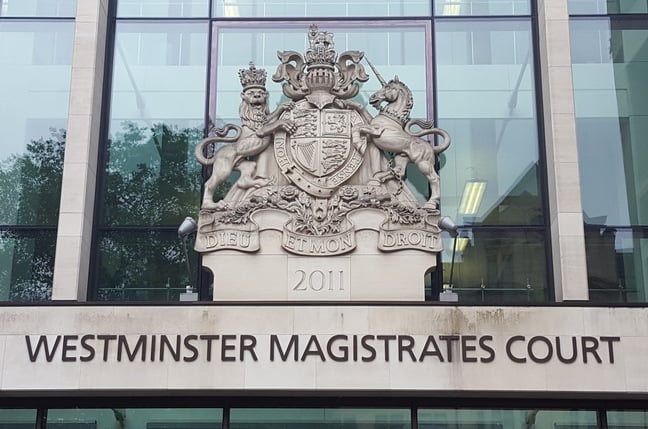British voyeur escapes US extradition over 770 cases of webcam malware

A grandfather who admitted secretly infecting people’s laptops with webcam-activating malware so he could spy on them will not be extradited to the US – thanks in part to the UK’s so-called “forum bar”.
Christopher Taylor, 57, who “confessed to disguising malware as recognisable and legitimate computer programs”, installed Cybergate on more than 770 people’s devices, covertly recording “images of people in various stages of undress and involved in sexual activity” as Westminster Magistrates’ Court found.
Yet despite an attempt by US prosecutors to extradite him to Georgia, District Judge Michael Fanning refused to give it the green light on Wednesday (9 December). In spite of claims that Taylor’s malware-fuelled spree concerned mainly American citizens, close analysis of his seized laptop by an American expert found that just 7 per cent of his victims were located in the US – with the rest being spread between 37 different countries, including the UK.
Taylor himself was suicidal at the thought of being sent to the US, found the judge, as was his disabled wife who had threatened to end her life if her husband, also her main carer, was extradited. Both had previously given evidence to the extradition hearing.
None of the couple’s three children would be able to deliver full-time care for their mother in their father’s absence because of their own work and family commitments, they told the court.
The judge also found that Britain’s “forum bar” was engaged – meaning that Taylor’s crimes were suitable to be tried in the UK and not abroad. While at least one of Taylor’s victims was at the US’s Georgia Tech University (a student’s laptop infected with the malware compromised the domain, costing admins $5,000 to clean it up), there was no other evidence of direct harm caused by the Wigan grandad.
“I do not conclude that because 7 per cent of the identified victims were based in the US then ‘most’ of the harm from RP’s offending occurred there,” District Judge Fanning ruled [PDF]. “I presume that a prosecution in the UK remains a viable alternative given the dual-criminality issue clearly shows [Taylor’s] conduct falls within recognisable UK offences.”
Taylor used the Cybergate trojan, aka Rebhip, to compromise victims’ devices. Having deployed the remote-access trojan, he was then able to install the Cammy CCTV camera control suite, giving him access to victims’ webcams. His crimes were committed between 2012 and 2015, with the US extradition request first having been made in February 2016 after Taylor’s IP address was traced back to Britain. For reasons not explained in the judgment, he was not arrested until September 2019.
Forum bar and autism
The forum bar was invoked amid similar concerns over suicide by accused hacker Lauri Love. That case was also successful in preventing extradition – and featured the same autism spectrum expert as Taylor used.
Professor Simon Baron-Cohen, referred to by District Judge Fanning in the Taylor case as “the leading expert on the diagnosis of autism in adults”, diagnosed Taylor as autistic, telling the court that his research “shows those with autism are at an elevated risk of suicide compared to those without”. Two other medical experts, however, rejected the diagnosis – one of whom was also retained by Taylor’s legal team. District Judge Fanning sided with the two, noting that Baron-Cohen had declared that Taylor suffered from autism on the basis of “a single questionnaire and single interview with the patient”.
Taylor has been discharged from the extradition request. The US has the right to appeal the case to the High Court. ®
READ MORE HERE
